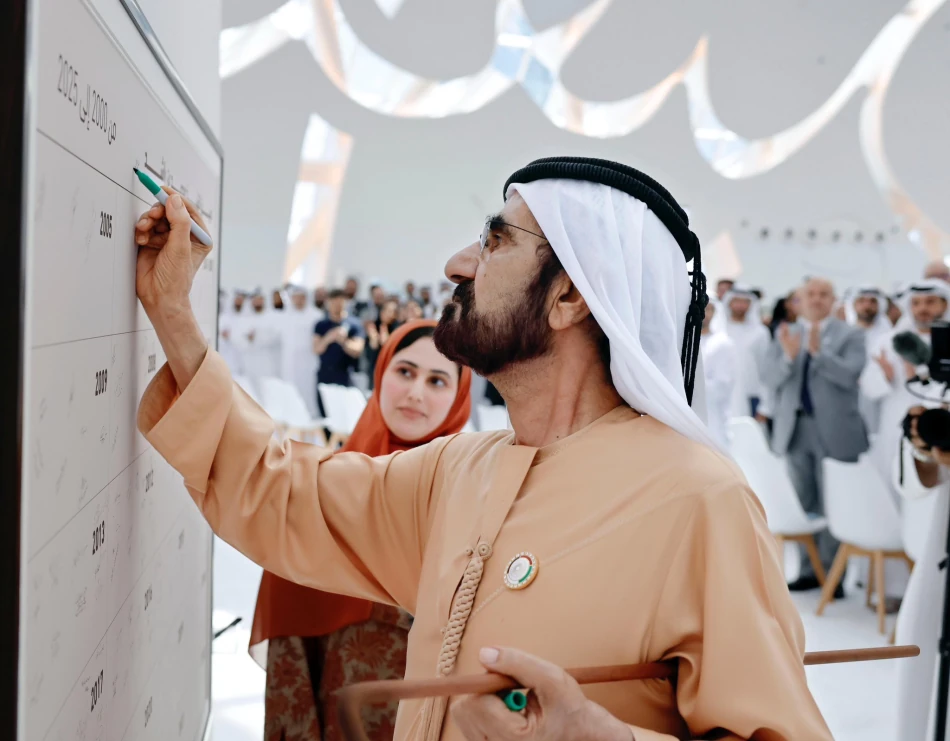
Sheikh Mohammed Unveils Promising Vision for UAE's Bright Future
Dubai's Ruler Sets Ambitious Vision for 2025-2026: Excellence in Government Performance and Public Service
Sheikh Mohammed bin Rashid Al Maktoum, UAE Vice President, Prime Minister, and Ruler of Dubai, has challenged his leadership team to make the 2025-2026 government season the most successful yet in terms of achievement, innovation, and public service delivery. The directive comes as Dubai continues to position itself as a global hub for business, technology, and governance excellence.
A Quarter-Century of Continuous Evolution
During his annual meeting with his core team, Sheikh Mohammed reflected on more than 25 years of collaborative leadership, emphasizing the continuous evolution of both the team and their accomplishments. "Every year the team develops, the achievement develops, and the ideas develop," he stated on his official X account, highlighting how experience has only enhanced their creativity and dedication.
This long-term perspective underscores Dubai's strategic approach to governance—building institutional knowledge while maintaining adaptability. The emphasis on year-over-year improvement reflects the emirate's commitment to iterative excellence, a principle that has driven its transformation from a trading port to a global metropolis.
Strategic Implications for Dubai's Competitive Position
Regional Leadership in Government Innovation
Sheikh Mohammed's directive positions Dubai to maintain its edge over regional competitors like Saudi Arabia's NEOM project and Qatar's National Vision 2030. By focusing on government performance as a competitive advantage, Dubai reinforces its strategy of using efficient public administration to attract international business and talent.
The timing is particularly significant as Gulf states intensify their economic diversification efforts. Dubai's emphasis on service excellence and innovative governance could prove decisive in capturing investment flows and high-value residents in an increasingly competitive regional landscape.
Investor and Business Community Impact
For international investors and businesses, this commitment signals continued regulatory efficiency and service quality—factors that have made Dubai a preferred destination for multinational headquarters and regional operations. The focus on "serving people" encompasses both citizens and the large expatriate business community that drives much of Dubai's economic activity.
The pledge also suggests potential policy innovations and streamlined processes that could benefit sectors from fintech to real estate, areas where Dubai has consistently pushed boundaries to maintain its competitive edge.
Governance as Economic Strategy
Unlike many global cities where government efficiency is viewed primarily as a public service issue, Dubai treats governance excellence as core economic infrastructure. This approach has yielded measurable results: Dubai consistently ranks among the top global cities for ease of doing business and government digital services.
The 25-year continuity Sheikh Mohammed referenced provides institutional stability rare in rapidly developing economies. This consistency, combined with adaptive innovation, creates a governance model that other emerging market cities struggle to replicate.
Looking Ahead: Execution and Expectations
The success of this ambitious vision will likely be measured through Dubai's performance on international competitiveness indices, business registration timelines, and digital government service ratings. Given Dubai's track record of translating leadership directives into measurable outcomes, the 2025-2026 period could see significant advances in areas like AI-powered government services, regulatory sandboxes for emerging industries, and cross-border digital commerce facilitation.
For stakeholders across the region, Dubai's commitment to governance excellence represents both an opportunity and a competitive challenge, as the emirate continues to raise the bar for what efficient, innovative government can achieve in driving economic growth.
Most Viewed News

 Sara Khaled
Sara Khaled






